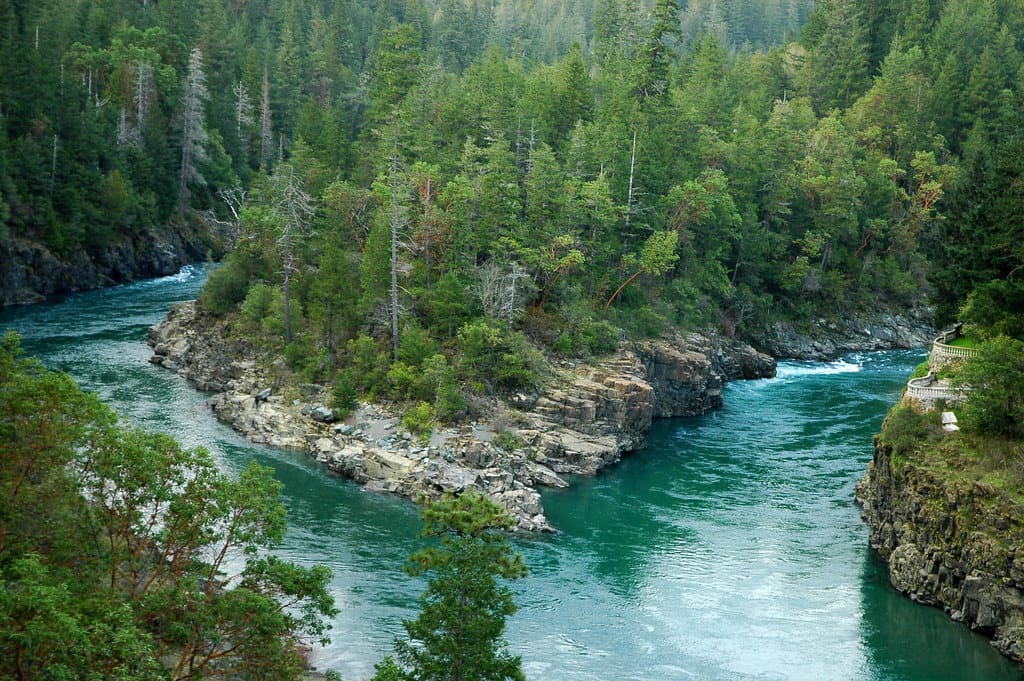Klamath & Olive Oil

Featured Articles
The Other Side of the World’s Largest Dam Removal
Hakai Magazine • 12 Nov 2024 • ~7300 words
J.B. MacKinnon follows the removal of dams on Klamath River in Northern California. The project is generally viewed as beneficial for fish and river ecosystems. Still, not all locals agree, and some feel that this is a project of the “politically liberal global elite.” Indigenous communities, on the other hand, feel differently, as they claim the dams stopped salmon from swimming upriver and see the removal of the dams as righting a historical wrong. MacKinnon reports on this complex topic gracefully, and it might be the best thing you read all week.
Let me say frankly that I don’t find these connect-the-dots theories credible. They aren’t detached from reality, though. They’re attached to the reality that, for more than a century, people here have felt subject to outside forces beyond their control that ignore or devalue their interests. Through that lens, seeing a sinister role for global illuminati doesn’t take a long leap of imagination.
The flavour of mechanisation
Aeon • 12 Nov 2024 • ~3850 words
Olive oil was revered and cherished by the ancients. But its distinctive peppery taste is really a modern invention. If you are interested in reading more about olive oil, take a look at our special edition from July 2024.
But how did we come to believe that what was codified in the notion of extra virginity captures the essence of what olive oil is and always was? The underlying assumption is that oil production has a timeless quality, and is based on practices and technology that have stayed constant for centuries, if not millennia, only to be corrupted by new industrial methods between the 19th and 20th century. It’s another version of the misleading narrative that portrays traditional practices as static, non-creative and destined to be wiped away by modern technological innovation. In Silicon Valley’s lore, disruption and radical innovation are positive values. In the case of oil, and food more generally, it’s come to be the opposite: innovation corrupts venerable traditions and threatens people’s health and identities. But the model of change underlying both narratives is similar. And it’s wrong.
Recommended Articles
All the drama of Spain’s flash floods, contained in one street: ‘Deaths could have been avoided’
EL PAÍS English • 11 Nov 2024 • ~6250 words
The water destroyed Nuria’s house, Sarai’s clothing shop, Maria’s school. Five residents died in a 300-meter stretch of road in Catarroja, one of the hardest hit municipalities in Valencia province. We focused on this spot, where events reflect the magnitude of the disaster: the failure of the alerts, the lost homes and businesses, the delay of the emergency services, the tide of volunteers. And the glimmer of hope for the future.
The degree of devastation in all of them is such that it leaves you breathless. In many streets, there is only mud and human beings with stories to tell. Each person has one. What happened here is so brutal that we journalists have been left to wonder whether it is even possible to convey the tragedy in all its dimensions. Sometimes it is useful to look through a microscope, so this report focuses on a single street in Catarroja, the street that Vicente and Laura live on, the street where four people died in that garage. On Blasco Ibáñez Avenue.




